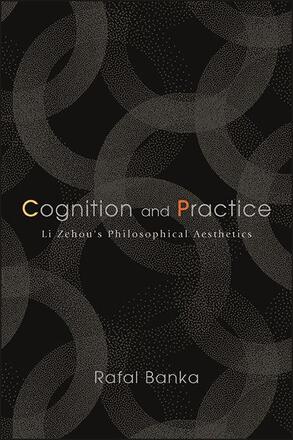
Cognition and Practice
Li Zehou's Philosophical Aesthetics
Alternative formats available from:
Explores the aesthetic theory of one of China's most important and influential contemporary philosophers.
Description
This is the first book on the role of cognition in the aesthetic theory of Li Zehou (1930–2021), one of China's most important and influential contemporary philosophers. The cognitive dimension and its integration with practice is discussed by examining one of Li's pivotal concepts: "subjectality," a human subject shaped by the world in which they live, including beauty and aesthetic experience. Li's theory is also contextualized in the threefold inspiration coming from Confucian, Kantian, and Marxist philosophies, which differently conceptualize the aesthetic and cognitive dimensions in humans. By referring to different aesthetic theories and interdisciplinary approaches to cognition, the book aims to show how Li's cognitively oriented project can contribute to contemporary research into aesthetics. Although primarily written for philosophers working in aesthetics, Chinese, and comparative philosophy, the book is also addressed to anyone interested in contemporary Chinese thought.
Rafal Banka is Research Fellow in the Faculty of Philosophy at University of Oxford in England.
Reviews
"This outstandingly rigorous book offers fresh, thought-provoking perspectives on the philosophies of Li Zehou, arguably the most important and influential thinker from the PRC. Rafal Banka's deft translations place Li into conversation with Kant, Marx, Confucius, and modern thinkers and scholars worldwide. Situating Li's work squarely in contemporary debates about humanity's most compelling questions—(co-)existence with the eco-system and each other in this multipolar world—Banka provides a much-needed intellectual map through Li's significant yet egregiously undervalued insights." — Liu Kang, author of Aesthetics and Marxism: Chinese Aesthetic Marxists and Their Western Contemporaries
"This well‐researched book expands the field of aesthetics by introducing the work of Li Zehou, a major figure in contemporary philosophy largely unknown in the West simply because he is Chinese. Li's ability to meld seemingly disparate sources (Marxism, Confucianism, and Kantianism) into his own 'philosophical project' warrants significant scholarly attention. Moreover, this book adds dimensionality by bringing in John Dewey's aesthetic theory and recent research in cognitive science. Revealing Chinese initiatives in globalizing history in the wake of the Chinese Revolution also signals the author's admirable effort to promote true globalization in the discipline of philosophy." — Sandra A. Wawrytko, coeditor of Dao Companion to Chinese Buddhist Philosophy